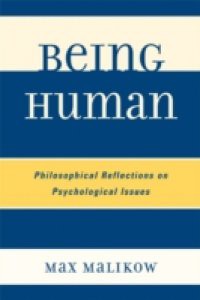The thread running through this collection of essays is the inviolate marriage between philosophy and psychology. Psychotherapist Mary Capocefalo has written, 'Long before psychologists were asking questions about mind and behavior, philosophers were expressing the same curiosity.' The Socratic method of teaching by asking questions is indispensable in psychotherapy. Aristotle spoke about happiness as though he had read twentieth-century psychological research on the subject. Albert Camus reduced the study of philosophy to a single psychological issue: suicide. Conversely, Sigmund Freud and Carl Jung addressed the question of the meaning of life. Lawrence Kohlberg and John Robert Coles investigated moral behavior. And Viktor Frankl integrated existentialism into the practice of psychotherapy. 'East is east and west is west and never the twain shall meet,' does not apply to philosophy and psychology.

